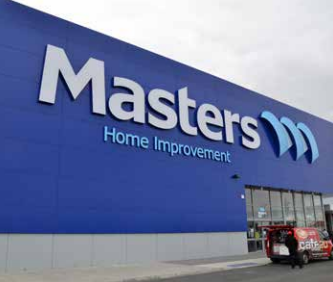As someone who has closely followed the Masters Home Improvement story since its inception and having observed its demise, I’m reminded of the 1865 literary classic Alice In Wonderland and the phrase from therein: “Why, sometimes I’ve believed as many as six impossible things before breakfast”. Why did Woolworths enter the home improvement market in the first place when Wesfarmers’ Bunnings Warehouse, Australia’s largest household hardware chain, was clearly dominating the catego
ry?
Woolworths executives seemed to believe that Wesfarmers was in a vulnerable position after having made recent major retail acquisitions, such as Coles and Target. The belief within the executive ranks at Woolworths was that Wesfarmers would be distracted by these acquisitions. Woolworths sensed an opening to enter the estimated $40 billion Australian home improvement market.
To paraphrase a leading strategy consultant familiar with the inside machinations surrounding the decision to compete against Bunnings, Woolworths’ team of executives believed what they wanted to believe, and they only saw what they wanted to see.
Although history has proven that Woolworths’ executives incorrectly interpreted the vulnerability of Wesfarmers in 2011 when the first Masters Home Improvement store was opened, what remains unclear is why Woolworths chose to enter into a Masters joint venture agreement with US home improvement and appliances retailer Lowe’s in the first place.
For example, how is it possible that an Australian company would turn to an American retailer with no experience operating in Australia and ask them to enter into a partnership? Why did Masters Home Improvement stock shelves with products Lowe’s sold in their stores in the United States? Products and brands that Australians were unfamiliar with and that did not meet the needs of Australian consumers. Why did Woolworths fail to perform an in-depth analysis of the home improvement market in the first place before launching Masters? Or did Woolworths perform such an analysis, the drew the wrong conclusions from it?
According to Commonwealth Bank of Australia analyst Andrew McLennan, “We believe the big box format can only attain around 15 per cent of the market, and Bunnings already has that”.
In other words, regardless of whether or not Wesfarmers was vulnerable, the mechanism Woolworths chose to disrupt Wesfarmers equilibrium, Masters Home Improvement, never had a chance to be successful because of Bunnings Warehouse’s dominant position in the market.
In discussions with executives involved in the decision to launch Masters, none of who agreed to speak on the record, a common phrase that I heard was, “we missed it”.
“Would you tell me, please, which way I ought to go from here?”
“That depends a good deal on where you want to get to.”
“I don’t much care where –”
“Then it doesn’t matter which way you go.”
The quotes above, from Alice In Wonderland, are more telling in the context of Woolworths’ Masters debacle than most people realise. The Masters disaster stemmed from a clear lack of strategy on the part of Woolworths’ executive team. It is one thing to misinterpret the vulnerability of a competitor, but operating without a strategy is something else entirely.
No viable strategy
The primary reason why Woolworths and Lowe’s had to plow over $3 billion into Masters Home Improvement while incurring losses of over $1 billion before the decision was made in January of this year to exit the business was a direct result of not having a viable strategy in the first place.
The Achilles Heel for Woolworths is the lack of a viable strategy for moving the company forward. Although current CEO, Brad Banducci, is actively working on such a strategy, under former CEO Grant O’Brien, strategy was an afterthought. There is no logical or justifiable reason for the creation and launch of Masters Home Improvement, and there is scant evidence of a strategy in which Woolworths could have leveraged Masters to their advantage in their battle against Wesfarmers.
A question that must be asked is what now for Woolworths as it relates to Masters Home Improvement and their future? Woolworths certainly needs to accelerate divesting all traces of Masters Home Improvement and ending its relationship with Lowe’s sooner rather than later.
Woolworths was never going to be successful in competing against Bunnings Warehouse, so there is no value to be gained in delaying a final resolution to Masters. What is important, however, is that Woolworths places controls in place to ensure that they will never again fail to perform the required due diligence before they make the decision to enter a new market.
In terms of the future of Woolworths, its first priority must be to determine its winning aspiration. In other words, who is Woolworths? What do they stand for? How will they win against Coles and Aldi? The answers to these questions are very important, and answering them will go a long way towards helping solve the great puzzle of Woolworths.







